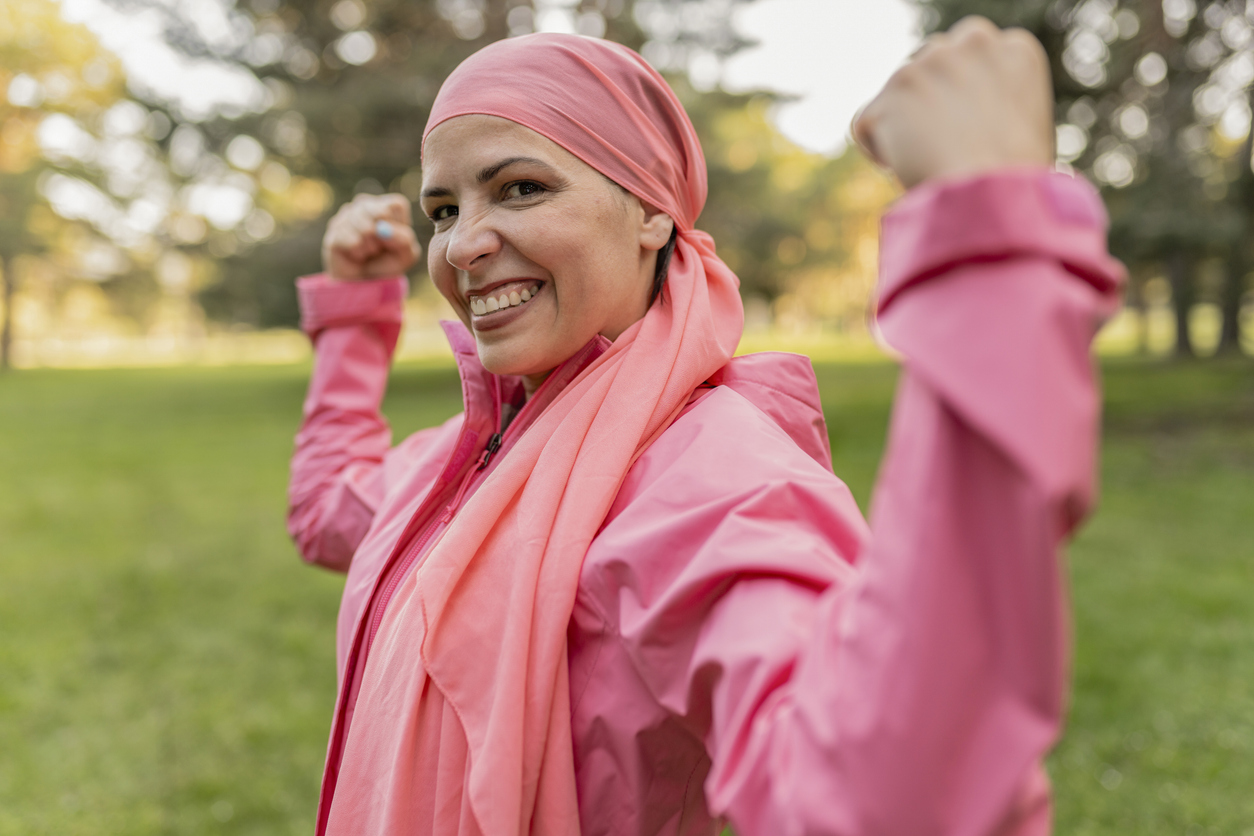2025-10-06
Breast Cancer: The Role of Lifestyle in Reducing Risk
Oncology
By Carolina Lima | Published October 6th, 2025 | 3 min read
#BreastCancerAwareness #PinkOctober #OncologyUpdates
Breast cancer is the most frequently diagnosed cancer among women worldwide and its prevention remains a global health priority. While genetic predisposition—particularly BRCA1 and BRCA2 mutations— often dominates public discourse, recent evidence suggests that lifestyle factors significantly influence risk, even in genetically susceptible individuals. This article summarizes findings from Zhang et al. (2024), published in the Journal of the National Cancer Institute (JNCI), which evaluated the combined impact of genetic risk and lifestyle behaviours on early-onset breast cancer.
Zhang et al. conducted a large prospective cohort study including over 10,000 women to evaluate how genetic risk and lifestyle factors jointly influence breast cancer incidence. The genetic risk was quantified using a polygenic risk score (PRS) based on multiple susceptibility loci. Participants were stratified into low, intermediate, and high genetic risk categories. Lifestyle was assessed using a composite score based on five modifiable factors:
Women were classified as having a favourable, intermediate, or unfavourable lifestyle profile. The primary outcome was the incidence of diagnosis of breast cancer before age 50.
The study by Zhang et al. reinforces a critical message: genetic risk does not negate the benefits of lifestyle interventions. While genetic testing remains essential for identifying high-risk individuals, prevention strategies should not stop there.
Healthcare professionals should reinforce the importance of empowering women toward better lifestyle choices — maintaining a healthy weight, exercising regularly, limiting alcohol, avoiding smoking, and following a balanced diet. These simple actions can significantly reduce breast cancer risk, even in women with strong genetic predispositions.
It may be time to shift the conversation from what women cannot change to what they can. Breast cancer prevention is not only about genetic testing and imaging—it is built on everyday lifestyle decisions. By empowering patients with practical, evidence-based guidance, clinicians can play a pivotal role in reducing the global incidence of breast cancer.
About the Author – Carolina Lima
Carolina is a specialist in Anaesthesiology with a deep passion for learning and sharing medical knowledge. Dedicated to advancing the field, Dr. Lima strives to bring fresh, evidence-based insights to the medical community. Viewing medicine not merely as a profession but as a lifelong journey of continuous learning, Dr. Lima is committed to making complex information clear, practical, and useful for healthcare professionals around the world.
#BreastCancerAwareness #PinkOctober #OncologyUpdates
Breast cancer is the most frequently diagnosed cancer among women worldwide and its prevention remains a global health priority. While genetic predisposition—particularly BRCA1 and BRCA2 mutations— often dominates public discourse, recent evidence suggests that lifestyle factors significantly influence risk, even in genetically susceptible individuals. This article summarizes findings from Zhang et al. (2024), published in the Journal of the National Cancer Institute (JNCI), which evaluated the combined impact of genetic risk and lifestyle behaviours on early-onset breast cancer.
Study Overview
Zhang et al. conducted a large prospective cohort study including over 10,000 women to evaluate how genetic risk and lifestyle factors jointly influence breast cancer incidence. The genetic risk was quantified using a polygenic risk score (PRS) based on multiple susceptibility loci. Participants were stratified into low, intermediate, and high genetic risk categories. Lifestyle was assessed using a composite score based on five modifiable factors:
- Poids corporel sain (IMC)
- Activité physique régulière
- Consommation limitée d’alcool
- Non-tabagisme
- Alimentation équilibrée
Women were classified as having a favourable, intermediate, or unfavourable lifestyle profile. The primary outcome was the incidence of diagnosis of breast cancer before age 50.
Key Findings
- Genetic Risk Matters, but It’s Not Deterministic Women in the highest genetic risk category had a significantly elevated risk of early-onset breast cancer compared to those in the lowest category. However, genetics alone did not fully explain the variation in risk.
- Lifestyle Has a Strong Independent Effect Across all genetic risk groups, women with a favourable lifestyle had a substantially lower risk of developing breast cancer than those with an unfavourable lifestyle. Among women at high genetic risk, adopting healthy behaviours reduced the relative risk by nearly 40%.
- Combined Impact Is Powerful The lowest risk was observed in women with both low genetic risk and favourable lifestyle, while the highest risk occurred in those with high genetic risk and unfavourable lifestyle. Importantly, even women with high genetic susceptibility benefited from lifestyle improvements.
Clinical Implications
The study by Zhang et al. reinforces a critical message: genetic risk does not negate the benefits of lifestyle interventions. While genetic testing remains essential for identifying high-risk individuals, prevention strategies should not stop there.
Healthcare professionals should reinforce the importance of empowering women toward better lifestyle choices — maintaining a healthy weight, exercising regularly, limiting alcohol, avoiding smoking, and following a balanced diet. These simple actions can significantly reduce breast cancer risk, even in women with strong genetic predispositions.
Final Thought
It may be time to shift the conversation from what women cannot change to what they can. Breast cancer prevention is not only about genetic testing and imaging—it is built on everyday lifestyle decisions. By empowering patients with practical, evidence-based guidance, clinicians can play a pivotal role in reducing the global incidence of breast cancer.
Read next: Transforming lifestyle habits during chemotherapy: Insights from the LEANer trial
About the Author – Carolina Lima
Carolina is a specialist in Anaesthesiology with a deep passion for learning and sharing medical knowledge. Dedicated to advancing the field, Dr. Lima strives to bring fresh, evidence-based insights to the medical community. Viewing medicine not merely as a profession but as a lifelong journey of continuous learning, Dr. Lima is committed to making complex information clear, practical, and useful for healthcare professionals around the world.

Last press reviews
Parental alcohol intoxication: the hidden impact on children’s mental health

By Carolina Lima | Published on January 19, 2026 | 3 min read
Obesity: when the kidneys become overwhelmed

By Ana Espino | Published on January 16, 2026 | 3 min read...
